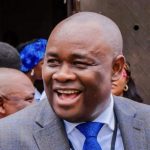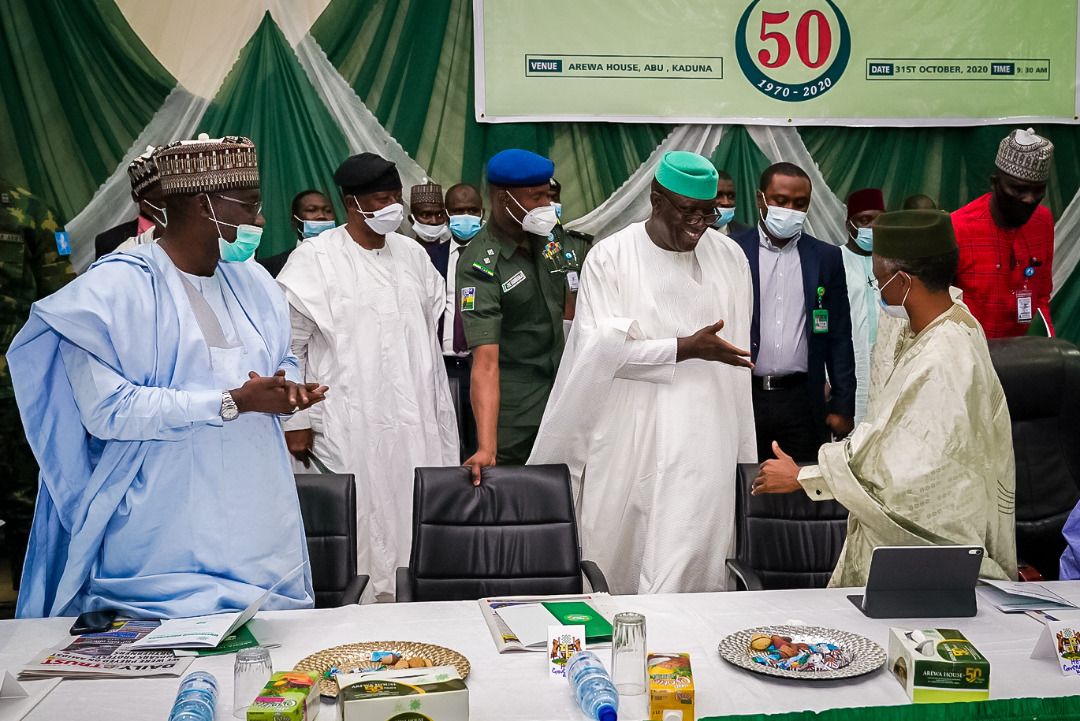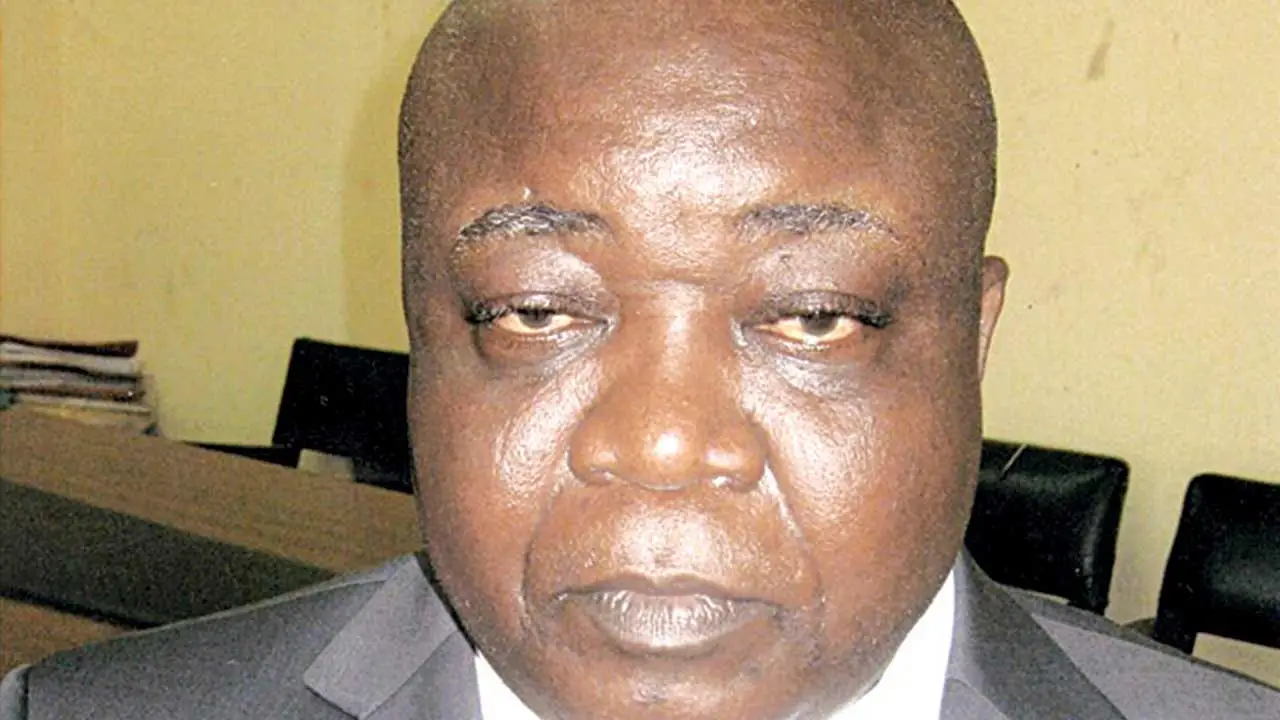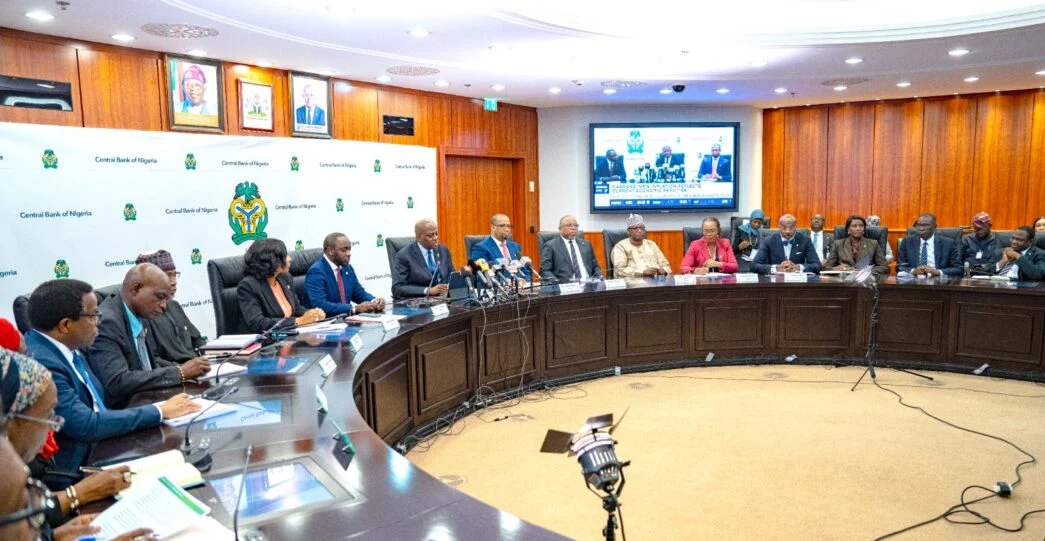For Governors Kayode Fayemi and Nasir El-Rufai, anything short of restructuring of Nigeria to cement the unity of Nigeria and engender a perfect union among its peoples is unacceptable and attaining greatness will be a mirage.
They believed that irrespective of the ethnic, religious, cultural and linguistic differences, Nigeria can still forge ahead as a nation.
Persecondnews had reported that former President Olusegun Obasanjo, Pastor Enoch Adeboye, the General Overseer of the Redeemed Christian Church of God and other well-meaning Nigerians had urged President Muhammadu Buhari to restructure the country to save it from disintegration.
Ekiti Governor Fayemi and Chairman of the Nigeria Governors’ Forum (NGF), called for equitable revenue allocation formula in a true federalism in a bid to give more resources to states and local governments with more responsibilities.
To el-Rufai, restructuring the country is an opportunity that should not be toyed with, as it will allow each state to be independent in managing its affairs without relying on the Federal Government.
To actualize this, Fayemi wants a review of the sharing formulae to give 43 per cent to states, 35 per cent to the federal and 23 per cent to the local governments.
According to him, the federal government should devolve more responsibilities to constituent units and reduce the concentration of powers at the centre.
Both Fayemi and el-Rufai spoke at the 50th Anniversary of the Centre for Historical Documentation and Research (Arewa House) in Kaduna chaired by the Sultan of Sokoto.
Persecondnews reports that Fayemi spoke on the topic: “Unfinished Greatness…Towards a More Perfect Union in Nigeria.”
He said building Nigeria to the status of a country that commands global respect is a continuous work in progress.
Insisting that the 1914 amalgamation of the Northern and Southern Protectorates by the British was not a mistake, Fayemi said:” The country can use the diversity to achieve greatness, if Nigerians would utilise the inherent opportunities.
“Nigerians should come together and urgently tackle issues that divide them, if the dreams of the founding fathers, including the late Premier of Northern Nigeria, Sir Ahmadu Bello, the Sardauna of Sokoto are to be realised by the present generation.
“All ethnic nationalities should be made to feel important in the Nigerian project; hence preference should not be given to a particular ethnic group over others.
“Nigeria, with over 250 ethnic nationalities, has managed its diversity, whereas some countries in Eastern Europe had balkanised into smaller nations, while Britain is yet to find a definitive answer to the Irish, Welsh and Scottish question.”
On the issue of restructuring, Fayemi identified sincerity in handling the issue as a means of giving assurance to stakeholders of the Nigerian project that achieving greatness through unity in diversity was still possible.
He said the vexed issues of devolution of powers, decentralisation, restructuring and such other concepts should not be clothed in ethnic or regional toga, but be used as an opportunity to re-imagine and reinvent Nigeria to make it work well for everyone.
“In essence, our desire to build a more perfect union should be anchored on the principle of devolution of powers – that is, re-allocation of powers and resources to the country’s federating units. The reasons for this are not far-fetched.
“First, long years of military rule have produced an over-concentration of powers and resources at the centre to the detriment of the states. Two, the 1999 Constitution, as has been argued by several observers, was hurriedly put together by the departing military authority and was not a product of sufficient inclusiveness.
“Part of the focus of such an exercise should be: what items should remain on the exclusive legislative list and which ones should be transferred to the concurrent list? Other topical issues include derivation principle; fiscal federalism and revenue allocation; land tenure, local government creation and autonomy, among others.
“All points considered, the fiscal burden of maintaining a largely inefficient and over-bloated bureaucracy is a metaphor for shooting oneself on the foot.”
“The evolution of Nigeria’s federalism has not served Nigeria’s best interests and it is not surprising that the polity has witnessed protests at every attempt at constitutional reengineering,” Ekiti governor explained.
On the nationwide #EndSARS protests by youths, Fayemi said it was high time the nation’s leaders looked into ways to solve problems which turned an innocuous online protests over police brutality into an avenue to challenge perceived failures to meet demands for good governance.
He said: “In responding to the challenges that this moment imposes on us, we must recognise that a business-as-usual approach will no longer be sufficient.
“What we need is a fundamental re-engineering of our governance system in a way that will make our country work better for everyone.”
El-Rufai said Nigeria could only attain greatness if she restructured.
He blamed the leadership of the ruling All Progressives Congress (APC) under ex-Gov. Adams Oshiomhole for failing to implement the report of the committee he chaired on true federalism in 2018.
“If implemented, it will be a roadmap to the nation’s greatness.
“I call on federal legislators and the National Assembly Ad-Hoc Committee on Constitutional Review to take advantage of his committee report and initiate constitutional and legislative amendments to take care of restructuring without further delay.”
He commended the vision of the six governors of the Northern states, who decided in 1970 to establish the centre that has become a research centre of international repute.
El-Rufai said: “I will not hesitate to admit that I am passionate about what constitutional framework will best enable the promise of this country to manifest…
“As its report show, the APC Committee on True Federalism produced clear recommendations to strengthen federalism and achieve national cohesion and healthy subnational competition.
“The committee also made efforts to accelerate the implementation of its recommendations, by producing draft bills that incorporate the recommendations either as proposed amendments to our Constitution or our national laws.”
























Leave a comment